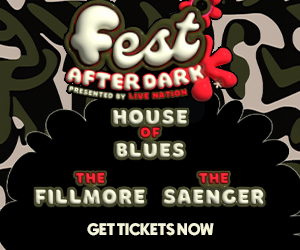Noruz has become one of New Orleans’ most intriguing bands, creating unmatched melodies through a distinct blend of jazz, improvisation, and modern pop. The band’s newest single, “Futa Trap,” is a powerful, theatrical convergence of jazz (well…kind of; more on that later) and metal. The single nods to a new direction for Noruz, highlighting angular melodic lines and a progressive metal-influenced rhythm section. Trumpeter and songwriter Cyrus Nabipoor took time to answer some questions about the single and the group’s sonic style.
This track is jazz influenced by metal. Has metal music influenced your trumpet style? In what ways?
Listening to metal has probably influenced my writing style more than the way I play the trumpet. However, two things do come to mind. First, I’ve always enjoyed picking up guitar riffs. I like the way they move around the range of the instrument, and there’s often a symmetrical logic to them because of the way the guitar is set up. There are tons of bluesy guitar-isms that translate really well onto the horn. You can find a lot of the same licks in traditional jazz, blues, and metal. Second, there’s the way metal singers distort their voices (“dirty”). This can be compared to growling on the horn, something New Orleans music is full of. I’ve found myself growling a lot more, recently.
Do you feel “Futa Trap” is progressive for Noruz’s sound? Was this song a result of experimentation or refining of older projects?
Although we’ve been getting heavier over the recent years, “Futa Trap” is definitely a notable leap in that direction for Noruz. When I wrote it a few years ago, it was new territory for me too. I was trying to hear these harsh, angular melodic lines in the context of a maj/min tonality. All the prog metal I was listening to (thanks Nick Benoit) was informing what I wanted from the rhythm section. The band’s performance really breathed life into the song. They made music out of these conceptual and theoretical concepts.
When writing music for Noruz, do you begin by writing horn sections or do you have an overall musical vision for the song?
Whenever one of the band members brings in a new song, it’s usually near completion. Some bands write everything as a group. We’ve never operated that way. Someone will have a new song they think is a good fit for Noruz, and then we will spend a few months working it up as a group. During this time, we’ll make small edits, decide on an overall form, and get comfortable with the groove. Personally, I generally start with either a melody, or a bass line. Then I find chords that fit. Deciding on chords is the hardest part for me.
What do you think sonically sets Noruz apart from other jazz fusion groups?
I’m going to slightly ignore this question in the interest of a more important topic which it brings up. I don’t love the term “jazz fusion.” The word jazz is problematic. I tend to agree with Nicholas Payton (and the many before him) who feel that jazz is a minstrel term which was forced upon the music by white people in order to understand it within the context of their colonialist view. Unfortunately, jazz tends to be an unavoidable word. When uploading the song to CD Baby, I had to choose a genre, and you can bet “BAM” wasn’t on that list (hopefully one day). So I am forced to either compromise my values in order to function in the music industry, or essentially be forced to operate as an underground, fringe artist. Do you realize how hard it is to avoid the word jazz? Say goodbye to Spotify, Bandcamp, CD Baby, booking club dates, jazz festivals, promoters, radio, the list goes on. So, I often find myself compromising this belief for the sake of ease, and that’s something I’m always living and reckoning with. But to address the actual question, I will say this: What makes Noruz unique is the same thing that makes so many great improvisational groups unique, and that is the special combination of the players in the group. Everyone has their own distinct style, bringing in different strengths and ears. We have been playing together for long enough that we are able to blend those differences into a unified sound, without stifling anyone’s individual expression.
Do you feel there is proper space for bands like Noruz to thrive within the New Orleans music scene?
Ha. Like the previous question, I have a lot to say about this one. These are great writing prompts. I’ll try to keep this one short and clear, without calling anyone out. I feel no shortage of appreciation and support from my fellow musicians in New Orleans. But I also notice, and not just in the case of Noruz, that it is extremely difficult for bands to get support from the city’s music industry unless they sound, in some recognizable way, ‘New Orleansy.’ This has much to do with the tourism industry, and also the lack of an actual music industry separate from said tourism. There is a lot of pandering to the tourist crowd, thus many great bands get overlooked by festivals and large venues. For a city with so many venues, the list of small/midsize places for original music that pay anything at all is surprisingly short. I know I sound slightly bitter, and I am, but these are real issues and in time the city will suffer from its stagnation.
“Futa Trap” can be found on Spotify.
Credits are as follows:
Artist: Noruz & Cyrus Nabipoor
Trumpet & Songwriter: Cyrus Nabipoor
Saxophone: Ari Kohn
Keyboard: Jake Hickey
Guitar: Bill Daniel
Bass: Amina Scott
Drums: Trent O’Neal
Engineered by Bill Daniel
Mixed & Produced by Aaron Boudreaux
Mastered by Dana White at Specialized Mastering
Photo by Jason Foster




